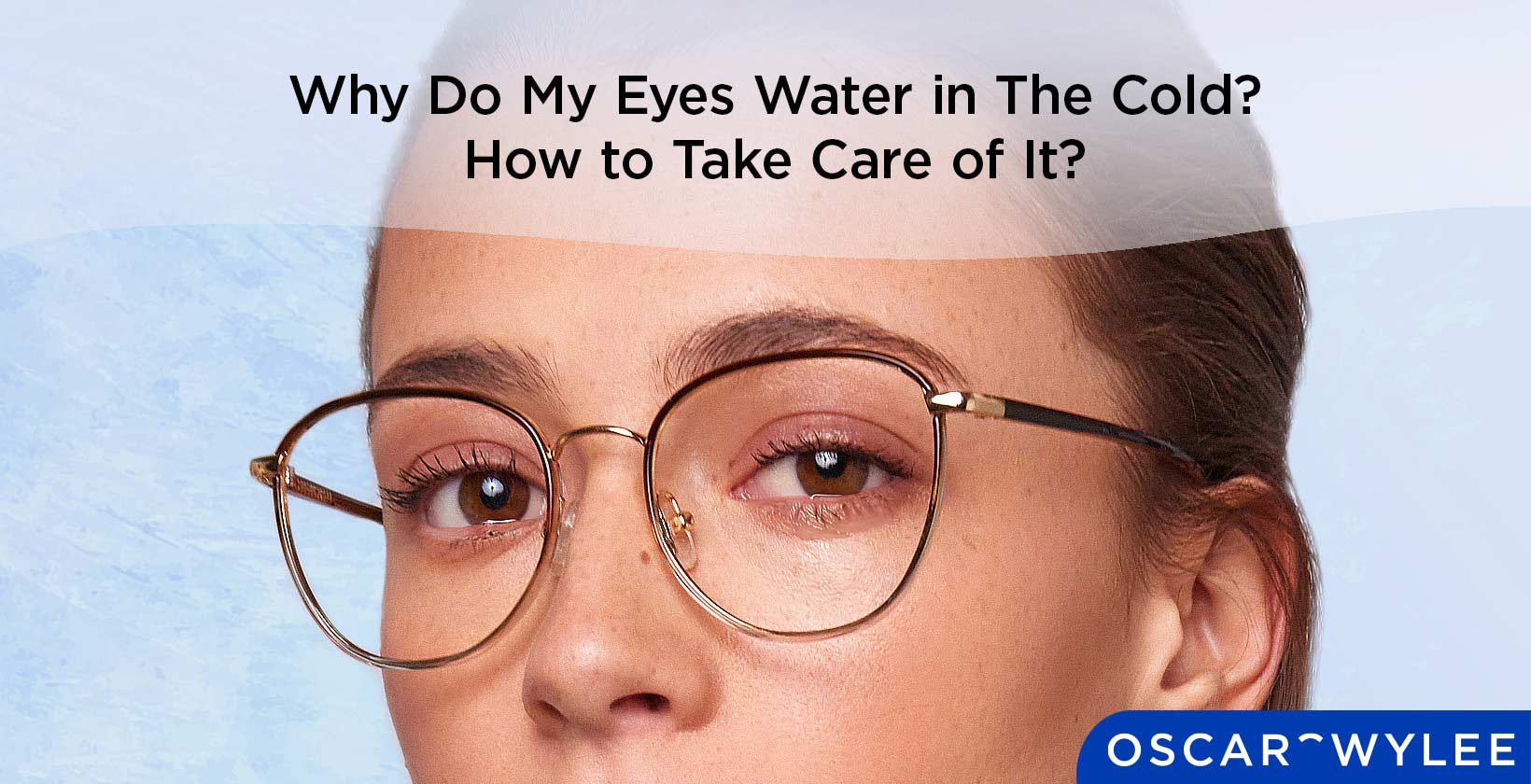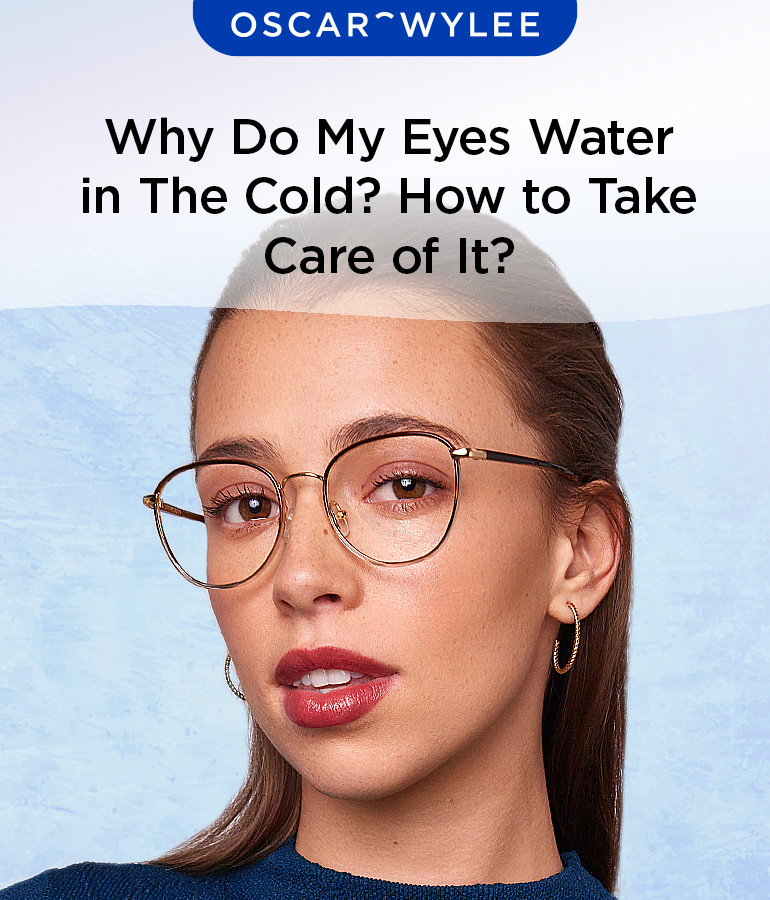Why Do My Eyes Water in The Cold? How to Take Care of it?
Published on August 13th, 2024
It is common for a person’s eyes to water in the cold and during winter as the lack of moisture and cold air can irritate the eyes, causing dry eyes and excessive tearing. Ways to protect the eyes in the cold include using a humidifier, staying hydrated, wearing sunglasses, avoiding direct heating sources, using artificial tears, blinking regularly and visiting an eye care professional. Not caring for the eyes during winter can result in dry eyes, excessive tearing, photokeratitis, blurry vision and irritation from foreign objects. Keep reading to learn more about how to take care of your eyes in the cold and winter months.
How to Take Care of Your Eyes During Winter?
There are many ways a person can endeavour to take care of their eyes during winter to avoid irritation and excessive tearing. These ways include using a humidifier, staying hydrated, wearing sunglasses, avoiding direct heating sources, using artificial tears, blinking regularly and visiting an eye care professional. The ways to take care of the eyes in winter are listed below.
- Use a humidifier: Humidifiers can be used to improve a person’s indoor environment by adding moisture to the air to prevent dryness that may irritate the eyes.
- Stay hydrated: Drinking enough water can help to prevent dry eyes as it aids the eyes in producing an adequate amount of tears.
- Wear sunglasses: Wearing sunglasses in winter can help you protect your eyes from harmful UV rays.
- Avoid direct heating sources: Due to the cold temperatures in winter, people will use heating sources that produce dry air that can irritate the eyes.
- Use artificial tears: Artificial tears are used to add moisture to the surface of the eye, reducing dryness and irritation.
-
Blink regularly:
Blinking regularly is very important in the winter and in general,
as it protects the eyes from irritants and keeps the eyes
lubricated.
- Visit an eye care professional: If you are struggling to take care of your eyes during winter, you should visit an eye care professional who can assess your eyes.
1. Use a Humidifier
Humidifiers can be used to improve a person’s indoor environment by adding moisture to the air to prevent dryness that may irritate the eyes. When used in winter, a humidifier can help reduce allergy symptoms by cleansing dry and stuffy indoor air. Humidifiers are also great for winter as heaters and fires can make the air especially dry which can be painful for the eyes. Humidifiers can also help reduce the spread of germs as they maintain adequate indoor humidity.
2. Stay Hydrated
Staying hydrated in winter is very important not only for taking care of your eyes but your whole body. In terms of your eye health, drinking enough water can help to prevent dry eyes as it aids the eyes in producing an adequate amount of tears which is especially needed in winter. Dehydration affects the whole body, not just the eyes, but some eye-related signs that indicate you need to drink more water include sensitivity to light, a gritty feeling in the eyes and a burning sensation in the eyes. It is important to stay hydrated by drinking plenty of water throughout the day to help prevent dry eyes.
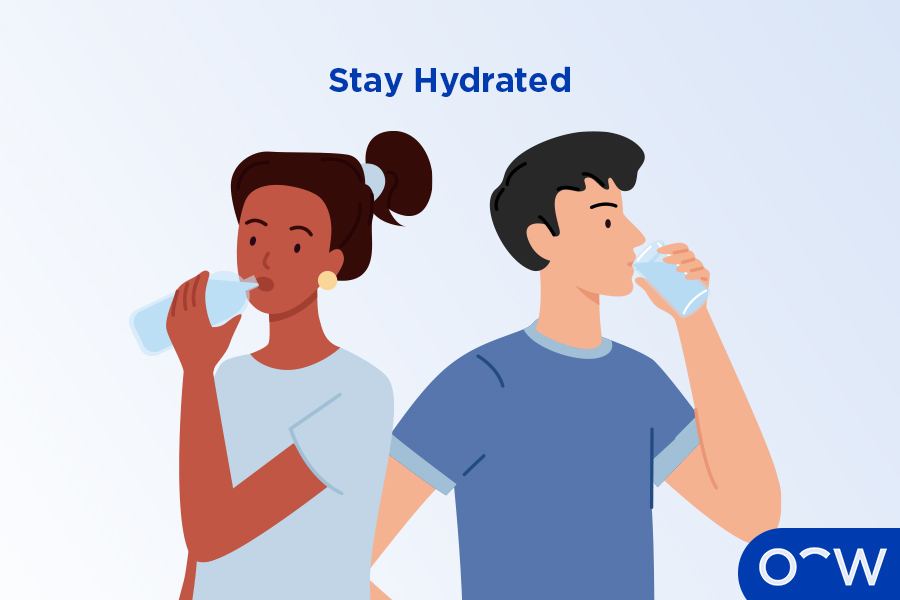

3. Wear Sunglasses
Wearing sunglasses in winter can help you protect your eyes from harmful UV rays. A type of photokeratitis called snow blindness can occur in winter from the UV radiation reflecting off snow and ice which is why it is important to wear sunglasses even in winter. Sunglasses are also a great way to protect your eyes from the wind which can dry out the eyes and carry dirt or debris into the eyes.
4. Avoid Direct Heating Sources
Due to the cold temperatures in winter, people will use heating sources such as air conditioning and furnaces which produce dry air that can irritate the eyes. To prevent this irritation, aim to avoid standing directly in front of heating sources and letting the warm air dry out your eyes. Another way to prevent warm air from drying out the eyes is to use a humidifier as it adds moisture to the air.
5. Use Artificial Tears
Artificial tears, also known as lubricating eye drops, are very useful for taking care of your eyes in winter. Artificial tears are used to add moisture to the surface of the eye, reducing dryness and irritation. Artificial tears are available over-the-counter and do not usually need a prescription, however, it is important to consult with a healthcare professional before using any type of medication. Artificial tears are needed in winter as the cold air and wind can dry out the eyes, evaporating the moisture on the surface of the eye. The eyes can also become dry due to indoor heating that is blowing artificial air directly into the eyes.
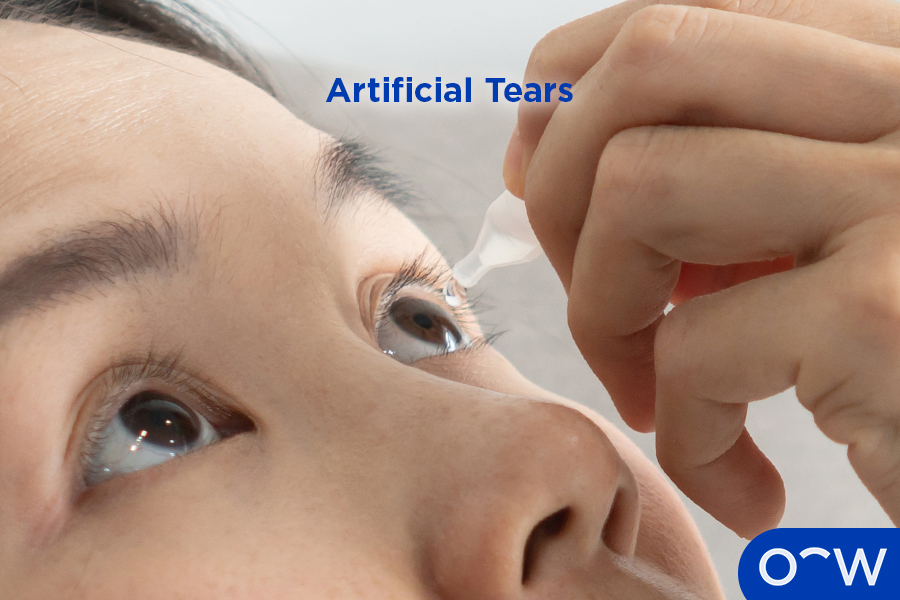

6. Blink Regularly
Blinking regularly is very important in the winter and in general, as it protects the eyes from irritants and keeps the eyes lubricated. According to the Cleveland Clinic, when you blink this spreads tears, known as lacrimal secretions, across the eyes, adding moisture to keep them comfortable. In the winter, the moisture in a person’s eye can be diminished which is why blinking regularly and even excessively can be a good thing and help you take care of your eyes in the cold.
7. Visit an Eye Care Professional
If you are struggling to take care of your eyes during winter, you should visit an eye care professional who can assess your eyes and provide treatment where necessary. It is beneficial to book an eye test with an optometrist as they can provide professional advice on what products to use and how to ensure your eyes feel comfortable in the cold. At Oscar Wylee, our skilled and friendly optometrists are available to provide Medicare bulk billed eye tests to take care of your eye health.
How to Stop Watery Eyes from the Cold?
To stop watery eyes from the cold, a person can use artificial tears, also known as lubricating eye drops. While it may seem contradictory to use eye drops when your eyes are watering, excess tearing in the cold is caused by the tears evaporating from the eyes. Tears evaporating causes the eyes to produce extra tears. Because these extra tears are of a poorer quality, artificial tears are used to help restore moisture in the eyes.
Can Winter Affect the Eyes?
Yes, as discussed above, winter affects the eyes and can lead to dry eyes, excess tearing and irritation. Cold temperatures combined with wind can evaporate the tears in the eyes causing the eyes to overcompensate and produce an excess of tears as well as leave them dry and irritated. Caring for the eyes in winter includes using lubricating eye drops, wearing sunglasses and using a humidifier.
Are Sunglasses the Simplest Way to Protect Your Eyes During Winter?
Yes, sunglasses are often considered the simplest way to protect your eyes during winter as they protect the eyes from UV rays and glare as well as prevent dust or other particles from entering the eye when it is cold and windy. Sunglasses are very important and should be worn all year round, not only in summer.
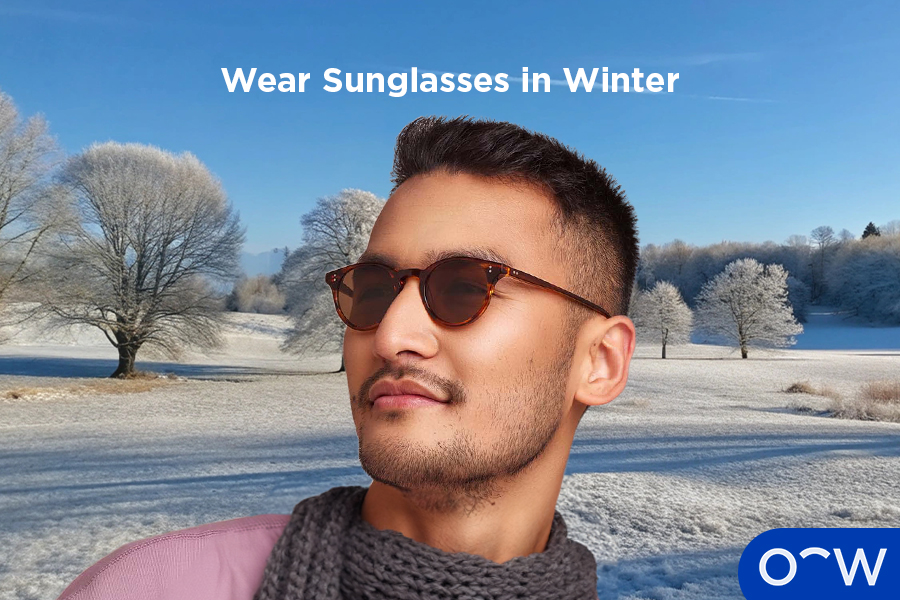

What are the Consequences of Not Protecting Your Eyes During Winter?
The consequences of not protecting your eyes during winter include dry eyes, excessive tearing, photokeratitis, blurry vision and irritation from foreign objects. These consequences and their definitions are listed below.
- Dry eyes: Dry eyes is an eye condition that is characterised by an insufficient amount of moisture in your eyes to maintain their health which is common during winter.
- Excessive tearing: Excessive tearing, known scientifically as epiphora, occurs when a person has an excess of tears or watery eyes which is common in winter.
- Photokeratitis: Photokeratitis can cause damage to the corneal epithelial cells leading to discomfort or pain and can develop as a consequence of UV radiation exposure.
-
Blurry vision:
Blurry eyes is a symptom of many eye conditions that can develop due
to winter such as dry eyes, excessive tearing and
photokeratitis.
- Irritation from foreign objects: The cold and windy weather of most winters can cause foreign objects to enter the eye causing irritation.
Is Photokeratitis Caused by Snow Blindness?
Snow blindness, also known as arc eye, is a form of photokeratitis that can occur when snow or ice reflects ultraviolet rays. According to the American Academy of Ophthalmology, exposure to UV at high altitudes such as in snow-covered terrain can be intense, resulting in photokeratitis.
Can UV 400 Sunglasses Help Avoid Photokeratitis?
Yes, UV 400 sunglasses can help a person avoid photokeratitis by protecting the eyes from UV radiation. One of the causes of photokeratitis includes sun glare off water, snow and ice as UV radiation can be reflected in the sun glare. Other ways to avoid this eye condition include limiting time spent in the direct sun if your activities frequently involve being outdoors, limiting the use of tanning beds and booths and using protective eyewear if you handle tools that emit UV light. All of Oscar Wylee’s lenses for prescription and non-prescription eyewear are equipped with UV 400 protection, which ensures the highest level of protection for your eyes.


